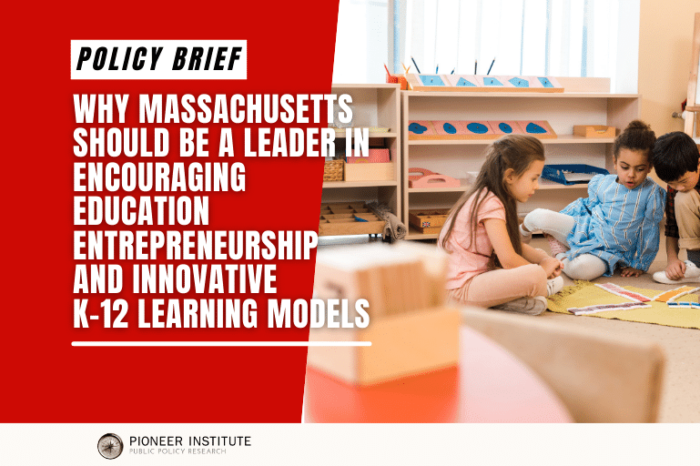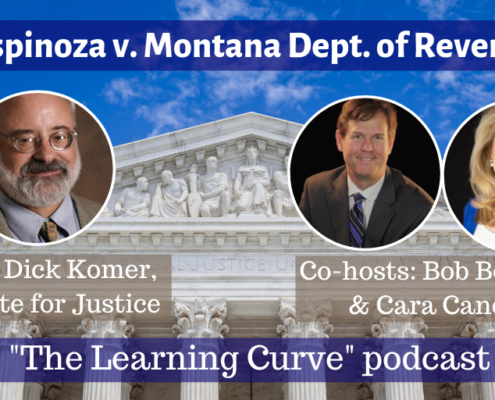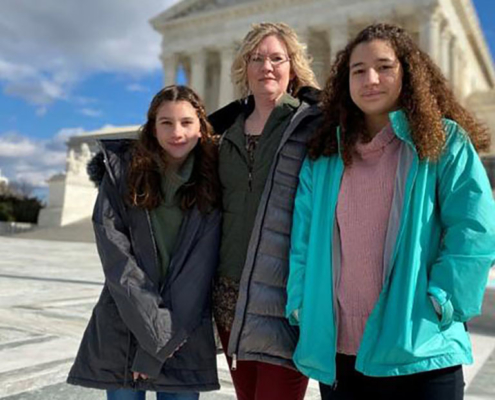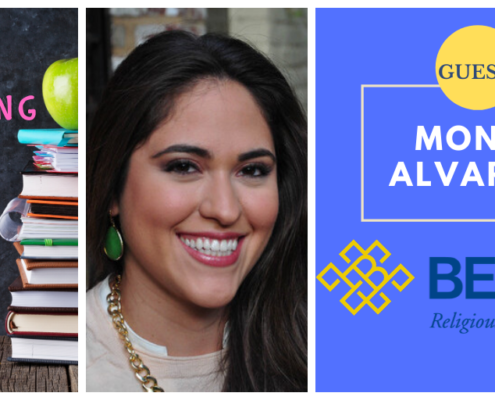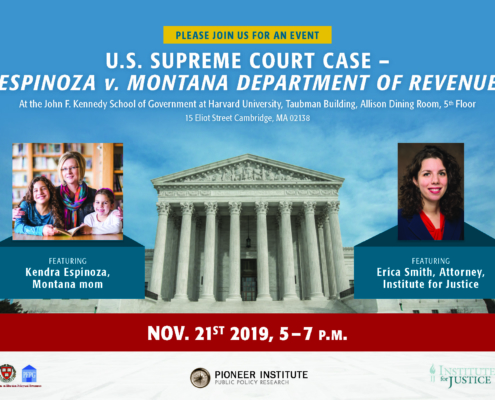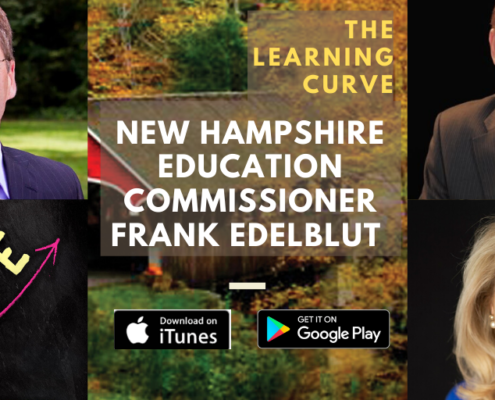Study Urges Massachusetts to Embrace Innovative School Models
State should loosen the regulatory impediments education entrepreneurs face
BOSTON – Massachusetts policymakers should encourage the proliferation and progress of non-traditional models that offer families creative, flexible, personalized and low-cost private education options, according to a new policy brief published by Pioneer Institute.
“Emerging models like microschools, learning pods, hybrid schools and co-learning communities often don’t fit neatly into a regulatory box,” said Kerry McDonald, author of “Why Massachusetts Should Be a Leader in Encouraging Education Entrepreneurship and Innovative K-12 Learning Models.” “And fitting into those boxes could strip them of their innovative characteristics and ability to adapt easily to changing needs of the families they serve.”
Among McDonald’s recommendations are reducing childhood care licensing requirements for emerging learning models, creating “innovation tracks” that support such models, expanding homeschooling freedoms and making it easier to start a private school.
“The states that are attracting entrepreneurs with new learning models are those that have at least begun to introduce some of these recommendations,” said Pioneer Director of School Reform Jamie Gass.
Massachusetts has long been a hotbed of educational innovation, but too often innovations developed here spread faster and further outside the Commonwealth.
For example, Wildflower Montessori, an independent network of private, teacher-driven microschools in convenient neighborhood shopfront locations, launched in Cambridge in 2014. Today there are 16 Wildflower schools in Massachusetts, but nearly three times as many outside the Commonwealth. The company has tried unsuccessfully to launch affiliated charter public schools in Massachusetts.
KaiPod Learning, which merges the personalization and flexibility of virtual learning with an in-person microschool experience, launched its pilot pod in Newton last year. Today it continues to have its flagship pod in Massachusetts but is quickly scaling in states like New Hampshire and Arizona.
“When expanding to new areas, we primarily look for indicators of support for student personalization and parent choice,” said KaiPod founder Amar Kumar. “Sometimes those indicators are regulatory, such as the number of public online schools or the ability for families to homeschool. Other times they’re financial, such as educational savings account programs that allow families to direct their tax dollars towards learning options that might work better for them.”
Many of these options are affordable. Families can enroll full- or part-time at KaiPod, with the full-time option costing $250 a week.
About the Author
Kerry McDonald is an education policy fellow at State Policy Network, and senior education fellow at the Foundation for Economic Education. She is the author of the book, Unschooled: Raising Curious, Well-Educated Children Outside the Conventional Classroom. She lives in Cambridge, MA. Find her on Twitter @Kerry_edu.
About Pioneer
Pioneer’s mission is to develop and communicate dynamic ideas that advance prosperity and a vibrant civic life in Massachusetts and beyond. Pioneer’s vision of success is a state and nation where our people can prosper and our society thrive because we enjoy world-class options in education, healthcare, transportation and economic opportunity, and where our government is limited, accountable and transparent. Pioneer values an America where our citizenry is well-educated and willing to test our beliefs based on facts and the free exchange of ideas, and committed to liberty, personal responsibility, and free enterprise.
Get Updates on Our School Choice Research
Related Content

